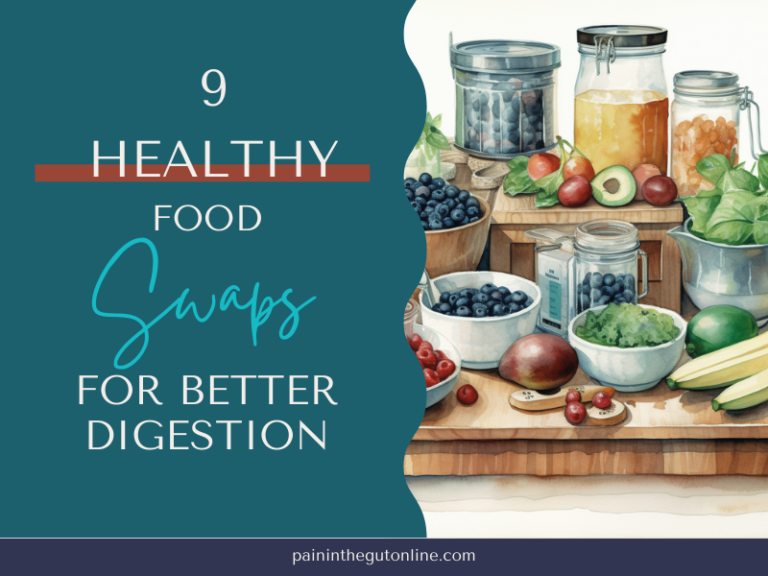BUDGET-FRIENDLY GUT HEALTH FOODS
9 min read/ 2, 119 words
Support your gut health on a budget! Discover budget-friendly gut health foods that will nourish your digestive system for less.

Taking care of your gut doesn’t have to cost a fortune. With some smart choices, you can keep your digestive system in top shape without blowing your budget.
Let’s dive into why gut health matters and how you can eat well without spending a ton.
Table of Contents
Why Gut Health Matters
Your gut is like the engine of your body. It’s home to trillions of bacteria that help with digestion, nutrient absorption, and keeping your immune system strong.
When your gut’s in good shape, you feel better overall—better digestion, more energy, and even a better mood.
But if your gut’s out of whack, you might deal with bloating, constipation, or diarrhea. It can also mess with your immune system, making you more likely to get sick.
So, keeping your gut healthy is key to feeling good all around.
Budget-Friendly Foods for a Happy Gut
Eating foods that are good for your gut doesn’t mean you have to spend a lot. Plenty of cheap options can help keep your gut in check. These foods are usually packed with fiber, probiotics, and prebiotics, which are all great for your gut.
Here are some benefits of eating budget-friendly gut-health foods:
- Better digestion: Foods high in fiber, like whole grains, beans, and legumes, help keep things moving and prevent constipation.
- Healthy gut bacteria: Probiotic and fermented foods, like yogurt, kefir, sauerkraut, and kimchi, are full of good bacteria that help keep your gut balanced.
- Strong gut lining: Prebiotic foods, like bananas, garlic, and onions, feed the good bacteria in your gut, helping to keep your gut lining strong.
- Hydration: Drinking plenty of water and herbal teas helps with digestion and keeps you from getting constipated.
Planning your meals and making a grocery list can help you get the most bang for your buck when you’re shopping on a budget.
Check out our article on affordable gut health tips for more ideas on how to keep your gut healthy without spending a lot. If you’re thinking about adding supplements to your diet, read our article on low-cost gut health supplements.
By focusing on affordable gut health foods and making smart choices, you can keep your gut happy and support your overall health. Remember, it’s not just about how much you spend but the quality of the food you eat.
Prioritize your gut health and see the benefits of eating budget-friendly options. For more tips on cheap gut health remedies, take a look at our article on cheap gut health remedies.
Fiber-Rich Foods
Looking to keep your gut happy without breaking the bank? Fiber-rich foods are your best friends. They pack a punch with essential nutrients and keep your digestive system in top shape.
Let’s chat about two wallet-friendly options: whole grains and legumes/beans.
Whole Grains
Whole grains are like the superheroes of the food world. They’re loaded with dietary fiber, which is key for a healthy gut. Plus, they come with a bonus of vitamins, minerals, and antioxidants.
And guess what? They won’t empty your wallet.
Check out these affordable whole grains you can snag at your local store:
| Whole Grain | Fiber Content (per 100g) |
|---|---|
| Brown Rice | 3.2g |
| Oats | 10.6g |
| Quinoa | 2.8g |
| Whole Wheat Bread | 6.2g |
| Barley | 17.3g |
Adding these grains to your meals is a no-brainer. They’re nutritious, budget-friendly, and easy to find. Mix them up in different recipes to keep things interesting.
Legumes and Beans
Legumes and beans are the unsung heroes of the pantry. They’re cheap, packed with fiber, protein, and a bunch of vitamins and minerals. These little guys can do wonders for your gut and keep you feeling full without costing a fortune.
Here are some budget-friendly legumes and beans with their fiber content:
| Legume/Bean | Fiber Content (per 100g) |
|---|---|
| Lentils | 7.9g |
| Black Beans | 8.7g |
| Chickpeas | 7.6g |
| Kidney Beans | 6.4g |
| Pinto Beans | 7.7g |
These versatile ingredients can jazz up soups, stews, salads, and dips. They’re not just good for your gut; they add a burst of flavor and texture to your meals.
By adding fiber-rich foods like whole grains, legumes, and beans to your diet, you’re doing your gut a favor without spending a fortune. These affordable options are nutrient-packed and keep your digestive system humming. Play around with different recipes and meal combos to get the most out of these budget-friendly gut health foods.
Probiotic and Fermented Foods
Adding probiotic and fermented foods to your diet is a cheap and effective way to keep your gut happy. These foods are packed with good bacteria that help balance the microorganisms in your digestive system.
Here are two wallet-friendly options: yogurt and kefir, and sauerkraut and kimchi.
Yogurt and Kefir
Yogurt and kefir are top-notch sources of probiotics, those live bacteria that do wonders for your health. These dairy products go through fermentation, which loads them up with beneficial bacteria.
| Probiotic Food | Types of Bacteria |
|---|---|
| Yogurt | Lactobacillus bulgaricus, Streptococcus thermophilus |
| Kefir | Lactobacillus kefiranofaciens, Lactobacillus kefir, Saccharomyces cerevisiae |
Yogurt and kefir can help with digestion, boost your immune system, and keep your gut microbiome in check. Go for plain, unsweetened versions to dodge added sugars. Toss in some fresh fruits or a bit of honey for a natural sweet touch.
Sauerkraut and Kimchi
Sauerkraut and kimchi are old-school fermented foods with a bunch of health perks. Sauerkraut is just fermented cabbage, while kimchi is a Korean mix of veggies. Both get their good bacteria from lactic acid fermentation.
| Fermented Food | Types of Bacteria |
|---|---|
| Sauerkraut | Lactobacillus plantarum, Leuconostoc mesenteroides |
| Kimchi | Lactobacillus brevis, Lactobacillus plantarum |
Eating sauerkraut and kimchi can help with digestion, improve nutrient absorption, and create a healthy gut environment. They’re also loaded with vitamins, minerals, and antioxidants.
Watch out for the sodium in store-bought versions and think about making your own.
By adding yogurt, kefir, sauerkraut, and kimchi to your meals, you can boost your gut health without spending a fortune. Start with small portions and slowly increase to let your body get used to them. Along with these budget-friendly options, you can also look into low-cost gut health supplements to give your digestive system extra support.
Keeping your gut in good shape doesn’t have to cost a lot—these affordable choices can make a big difference in how you feel.
Prebiotic Foods
Want to keep your gut happy without emptying your wallet?
Adding prebiotic foods to your diet is a smart and affordable way to do it.
Prebiotics are fibers that your body can’t digest, but your gut bacteria love them. They help keep your digestive system running smoothly. Two wallet-friendly prebiotic foods you can easily add to your meals are bananas and garlic and onions.
Bananas
Bananas are not just cheap and tasty; they’re also packed with prebiotic fiber. They have resistant starch, which is like a feast for the good bacteria in your gut.
Eating bananas can help these bacteria thrive, making your gut healthier.
| Banana Type | Resistant Starch Content (grams per 100g) |
|---|---|
| Unripe Green Banana | 4.7 |
| Ripe Banana | 0.7 |
You can munch on bananas as a quick snack or toss them into smoothies, oatmeal, or even baked goodies.
Garlic and Onions
Garlic and onions are kitchen staples that do more than just add flavor. They’re loaded with prebiotic fibers like inulin and fructooligosaccharides (FOS). These fibers make it through your digestive system without being broken down, feeding the good bacteria in your gut.
| Food | Inulin Content (grams per 100g) |
|---|---|
| Garlic | 9.9 |
| Onion | 1.7 |
Adding garlic and onions to your meals not only makes them tastier but also boosts your gut health. Throw them into soups, stews, stir-fries, or roasted veggies to get the benefits.
By adding budget-friendly prebiotic foods like bananas, garlic, and onions to your diet, you can keep your gut in top shape without spending a fortune. These foods provide essential fibers that help good bacteria grow, promoting a healthy digestive system.
Mix up your prebiotic foods to get the most benefits for your gut.
Hydration and Gut Health
Keeping hydrated is key to a happy gut. Drinking enough fluids helps digestion, keeps things moving, and boosts overall gut health.
Let’s chat about why water is your gut’s best friend and how herbal teas can give it an extra boost.
Why Water Matters
Water is like the oil in your car—it keeps everything running smoothly. It helps break down food, absorb nutrients, and flush out waste. Not drinking enough? You might find yourself dealing with constipation and other digestive issues.
Aim for about 8 glasses (64 ounces) of water a day. But hey, everyone’s different. Your needs might change based on how active you are, the weather, or your health.
Don’t wait until you’re parched—make sipping water a regular thing.
Herbal Teas and Infusions
Water’s great, but herbal teas can add some flavor and extra benefits for your gut. They’re usually easy on the wallet and come in lots of tasty options.
Here are a few that can help your digestion:
| Herbal Tea/Infusion | Benefits |
|---|---|
| Peppermint Tea | Eases digestive discomfort and can help with IBS symptoms. |
| Ginger Tea | Reduces nausea, aids digestion, and fights gut inflammation. |
| Chamomile Tea | Soothes the digestive system and helps with indigestion. |
| Dandelion Root Tea | Acts as a natural diuretic, supporting kidney function and digestion. |
| Fennel Infusion | Relieves bloating, gas, and indigestion by relaxing gut muscles. |
To get the most out of these teas, steep the herbs or tea bags in hot water for a few minutes. Mix and match to find your favorite flavors.
Just go easy on the sweeteners to keep things budget-friendly.
Adding water and herbal teas to your daily routine can keep your gut in good shape without costing a fortune. Stay hydrated and explore the world of herbal teas to support your digestive system.
Shopping Smart for Gut Health
Supporting your gut health doesn’t have to drain your wallet. With a bit of planning and some savvy shopping, you can keep your digestive system happy without spending a fortune.
Meal Planning and Grocery Lists
First things first, plan your meals and jot down a grocery list. This simple step helps you dodge those tempting impulse buys and stick to your budget.
Load up on gut-friendly foods that won’t break the bank. Think fiber-rich goodies like whole grains and beans, plus probiotic champs like yogurt and sauerkraut.
Don’t forget prebiotic foods like bananas and garlic—they’re like a feast for your gut bacteria.
Mix it up with your meals to get a variety of nutrients without overspending.
Look for recipes that use affordable ingredients and try batch cooking. Leftovers can morph into new meals, cutting down on waste and saving you some cash.
Budget-Friendly Tips and Tricks
Here are some wallet-friendly hacks to keep your gut in tip-top shape:
- Buy in bulk: Stock up on whole grains, beans, and nuts. Bulk buying can save you a ton in the long run. Check out stores or online shops that offer bulk deals.
- Go for frozen or canned: Frozen fruits and veggies, as well as canned beans, are usually cheaper than fresh ones. They’re also super convenient and last longer.
- Shop seasonal and local: Seasonal produce is often cheaper and fresher. Hit up your local farmer’s market or join a CSA program for fresh, local goodies at a lower cost.
- Compare prices and hunt for sales: Take a few minutes to compare prices at different stores. Look for sales, discounts, or coupons to save on gut-friendly foods. Just make sure you’re not sacrificing quality for a lower price.
- Try generic or store brands: These often match the quality of name brands but come with a friendlier price tag. Give them a shot and see if they fit your gut health needs.
Whole, unprocessed foods are not only great for your gut but also easier on your wallet.
By planning your meals, making a grocery list, and fcousing on budget-friendly gut health foods, you can keep your gut healthy without blowing your budget. Focus on nourishing your digestive system while being kind to your wallet, and you’ll be on your way to a happier gut.








